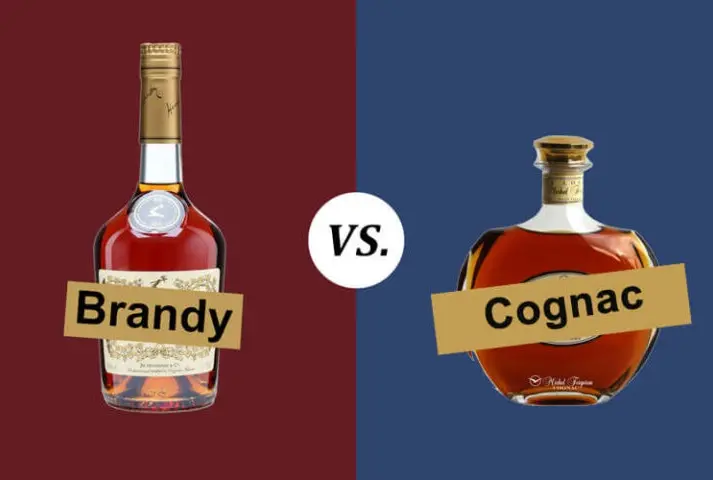Brandy and cognac, two distinguished spirits renowned for their complexity and depth of flavor, occupy a special place in the world of distilled beverages. Originating from the same raw material—grapes—these spirits undergo a meticulous process of distillation and aging to achieve their distinct characteristics. Let’s delve into the world of brandy and cognac, exploring their histories, production methods, and what sets them apart.
What is Brandy?
Brandy, a spirit derived from fermented fruit juice, predominantly from grapes, embodies centuries of tradition and craftsmanship. The name “brandy” itself is derived from the Dutch word “brandewijn,” meaning burnt wine, referencing the process of distillation that transforms wine into a potent elixir.
Production Process
Fermentation: The journey of brandy begins with the fermentation of fruit juice, often grape juice in the case of traditional brandy. Yeast converts the sugars in the juice into alcohol, creating a low-alcohol wine.
Distillation: The next crucial step is distillation, where the wine undergoes heating to separate alcohol from water and other compounds. This process concentrates the flavors and increases the alcohol content, typically to around 40% ABV (alcohol by volume).
Aging: After distillation, brandy is aged in oak barrels, allowing it to develop its character over time. Oak barrels impart flavors of vanilla, caramel, and spices while also contributing to the spirit’s smoothness.
Types of Brandy
Grape Brandy: The most common type, made from grapes and exemplified by Cognac and Armagnac.
Fruit Brandy: Made from fruits other than grapes, such as apples, pears, or cherries.
Pomace Brandy: Produced from the skins, seeds, and stems leftover from winemaking, like Italian Grappa.
Brandy Around the World
Brandy production is not limited to France; countries like Spain, Italy, the United States, and South Africa also have rich traditions of brandy-making. Each region’s climate, grape varieties, and aging techniques contribute to the unique flavors and styles of their brandies.
See Also: Metaxa Brandy vs. Cognac: What’s the Difference?
What Makes Cognac Special?
Cognac, often considered the pinnacle of brandy, is a specific type of grape brandy produced in the Cognac region of France. Its strict production regulations and centuries-old heritage contribute to its esteemed reputation worldwide.
Production Process
Grapes: Cognac must be made from specific grape varieties, predominantly Ugni Blanc (also known as Trebbiano), Folle Blanche, and Colombard.
Double Distillation: Unlike some other brandies, which may be distilled once, Cognac undergoes double distillation in traditional copper pot stills. This method refines the spirit, enhancing its aromatic complexity.
Aging in Limousin Oak: Cognac is aged in oak barrels, typically made from Limousin oak, which imparts subtle tannins and enhances the spirit’s smoothness and complexity.
Classification
VS (Very Special): Cognacs aged for at least 2 years.
VSOP (Very Superior Old Pale): Aged for at least 4 years.
XO (Extra Old): Aged for at least 10 years, showcasing deeper, richer flavors.
Terroir and Flavor
Cognac’s unique flavor profile is influenced by the region’s chalky soils, maritime climate, and proximity to the Atlantic Ocean. These environmental factors, known as terroir, contribute to the grapes’ quality and ultimately the spirit’s aromatic complexity.
Appreciating Brandy and Cognac
To fully appreciate brandy and cognac, one should consider their nuanced flavors and enjoy them in appropriate glassware, such as tulip-shaped glasses that concentrate aromas. Tasting notes often include hints of dried fruits, spices, oak, and sometimes floral or citrus elements, depending on the aging process and grape variety used.
Conclusion
Brandy and cognac stand as testament to the artistry of distillation and aging. Whether enjoyed neat, on the rocks, or in classic cocktails like the Sidecar or Brandy Alexander, these spirits offer a sensory journey through history and craftsmanship. From the vineyards of France to the cellars of renowned distilleries worldwide, brandy and cognac continue to captivate enthusiasts with their timeless allure and complex flavors.
In conclusion, while brandy encompasses a broader category of distilled spirits from various fruits, cognac stands out as a pinnacle of quality and tradition within the world of grape brandy. Both offer a glimpse into centuries-old techniques and regional expertise, making them beloved choices for connoisseurs and casual drinkers alike.


